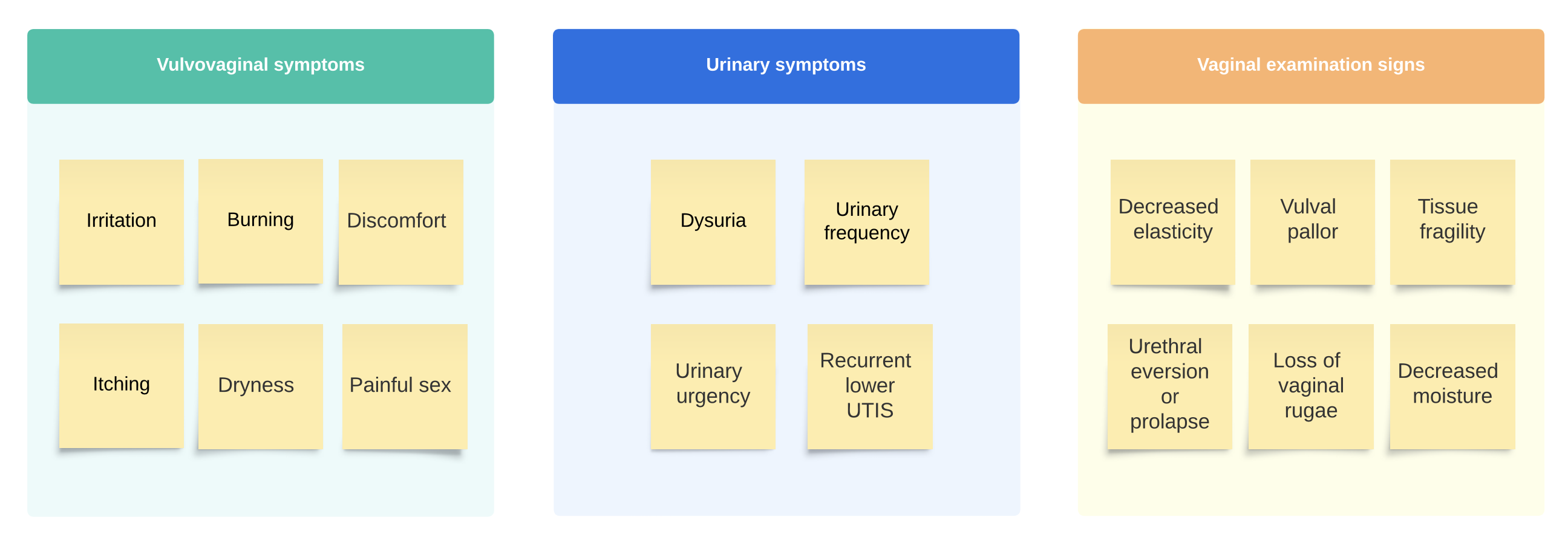Genitourinary syndrome (GSM)
- 08 Dec 2023
- 1 Minute to read
- Print
- PDF
Genitourinary syndrome (GSM)
- Updated on 08 Dec 2023
- 1 Minute to read
- Print
- PDF
Article summary
Did you find this summary helpful?
Thank you for your feedback

Suspect genitourinary syndrome of menopause (GSM) if one or more of the following are present:
Vulvovaginal symptoms:
- Irritation
- Discomfort
- Burning
- Itching
- Dryness
- Dyspareunia
- There may be loss of libido due to vaginal dryness and dyspareunia.
Urinary symptoms:
- Dysuria
- Urinary frequency and urgency
- Recurrent lower urinary tract infections
Examination is recommended for women with genitourinary symptoms, both to confirm the diagnosis and rule out other vulval conditions. However, a normal examination does not exclude the diagnosis of GSM.
For more information on examination, see the assessment section.
Note:
Treatment does not need to be delayed if an examination is declined or not possible during the initial consultation. However, if symptoms do not improve despite treatment a genital examination is recommended to revisit the diagnosis.
Additional Information:
Was this article helpful?

